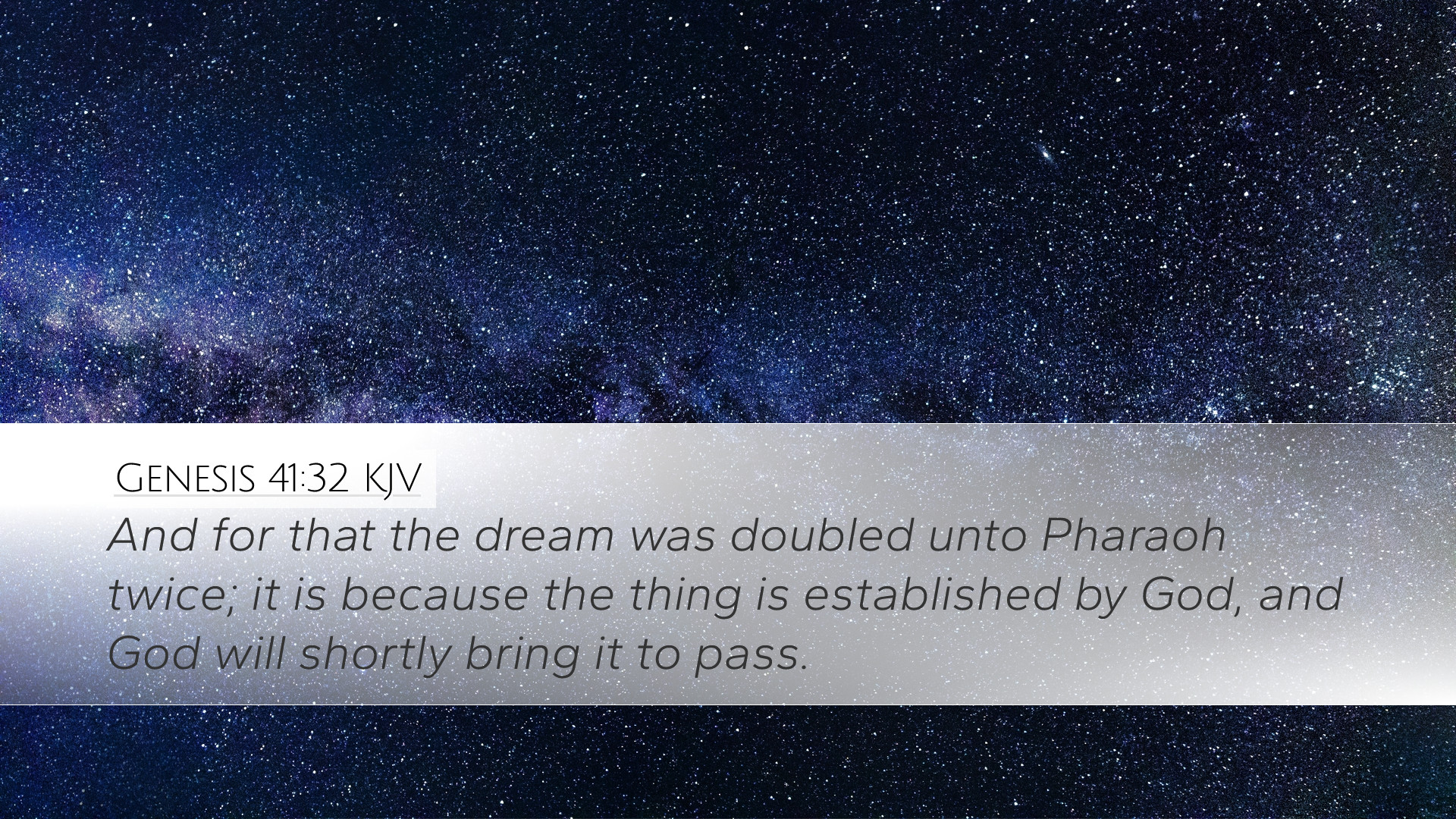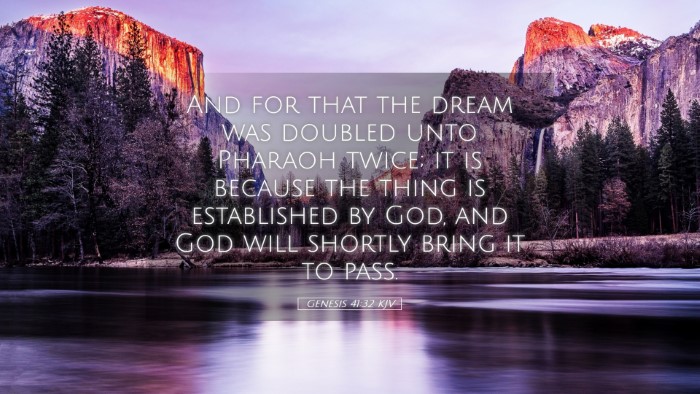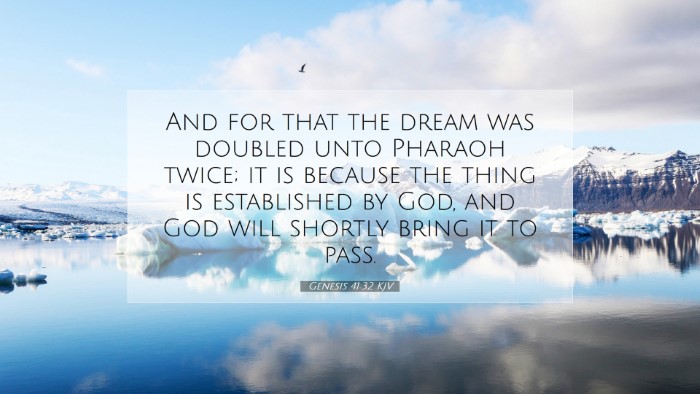Commentary on Genesis 41:32
"And for that the dream was doubled unto Pharaoh twice; it is because the thing is established by God, and God will shortly bring it to pass." (Genesis 41:32 KJV)
Introduction
The verse in question reflects a pivotal moment in the life of Pharaoh, where Joseph interprets a divine message manifested through two dreams. This interpretation reveals insights about God's sovereignty and His method of operating within human history. The doubling of the dream signifies the certainty of God's purpose and the immediacy of its fulfillment.
Historical Context
These events occur during a time of great famine foreseen by Joseph, which underscores the importance of divine revelation in the affairs of nations. Pharaoh's dreams are not mere figments but profound revelations that alert the king to forthcoming calamity and provide an opportunity for divine intervention through Joseph’s wisdom.
The Significance of Doubling in Dreams
Matthew Henry comments on the doubling of Pharaoh's dream, stating that "when God speaks once, it is of great import; but when He speaks twice, He underlines His will." The repetition signifies that the matter is established and ordained by divine authority.
Albert Barnes elaborates that the use of doubling in dreams indicates God's unchanging purpose and is a common Biblical theme, suggesting that God's messages are to be heeded with utmost seriousness. The emphasis on the double occurrence mirrors the witness of two or three in establishing truth, a principle seen throughout Scripture (Deuteronomy 19:15).
The Certainty of God's Plan
This verse serves not only as an assurance to Pharaoh but also as a theological declaration. Adam Clarke states that "the establishment of God’s word, through dreams, signifies His power in the natural realm." Joseph's insight leads Pharaoh to understand that what has been presented to him is not subject to change; it is ordained and will be executed according to God's timetable.
Theological Implications
In recognizing that God will shortly bring these things to pass, we also glean a deeper understanding of divine timing. Divine revelation often assures believers that God's plans are both imminent and assured. Matthew Henry stresses that this reflection on God's promises is essential for the faith of the people; understanding God's sovereignty fosters trust amid uncertainty.
The Nature of God's Providence
The dreams themselves are pivotal in understanding God's providential workings. Albert Barnes outlines that God governs nations and individuals alike, often through unconventional means. Joseph's rise to power is a testament to how God uses individuals in His grand narrative to enact His will.
Lessons In Leadership and Wisdom
Pharaoh’s situation teaches valuable lessons for leaders today. The response to divine revelation becomes critical in the narrative. Adam Clarke emphasizes the necessity for rulers to seek wisdom and counsel from those equipped by God to interpret and apply His will. This is particularly relevant in contexts of crisis, where leadership must be informed by divine guidance.
Conclusion
Genesis 41:32 encapsulates a significant moment not only in biblical history but also in eschatological understanding. The dreams of Pharaoh, and Joseph’s interpretation, hold timeless truths about God’s sovereignty, the certainty of His plans, and the invocation toward wise action in leadership. Believers are invited to recognize the patterns of God’s work not just in the life of Joseph or Pharaoh but in their own lives, as they wait upon God’s promises and respond with faithfulness to His clear directives.


